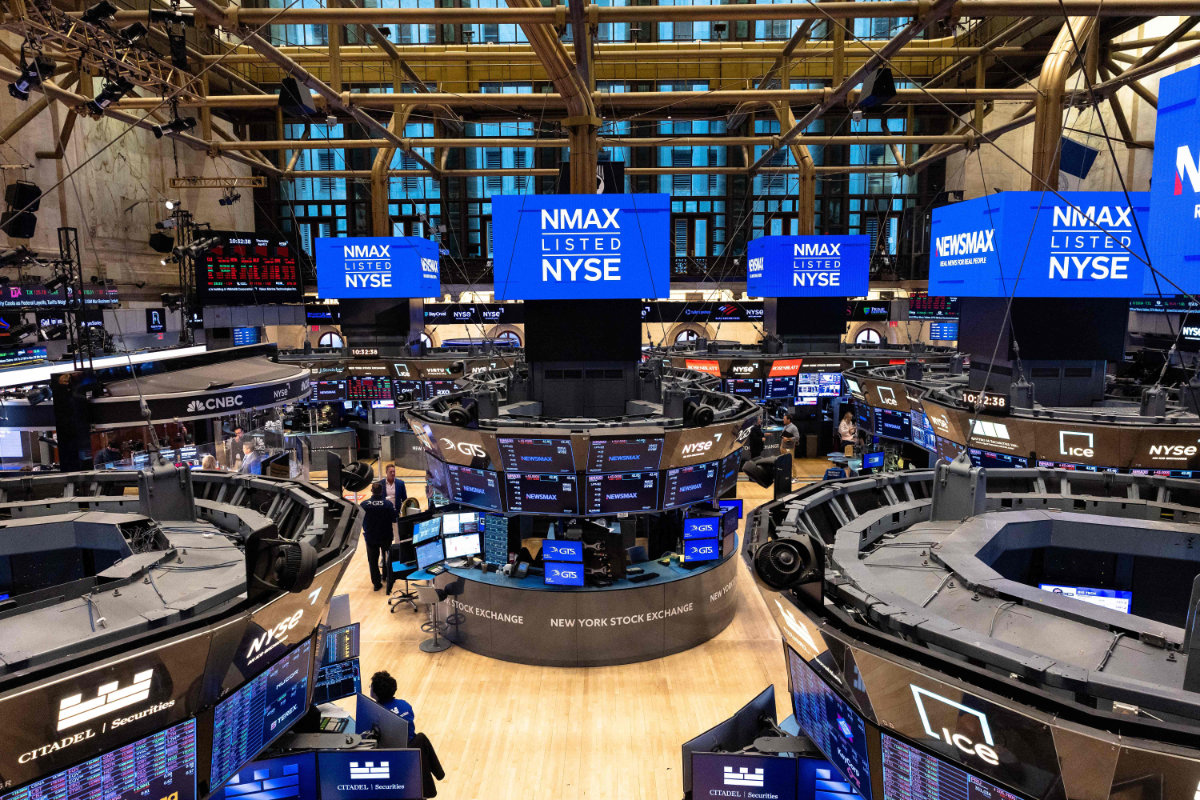WASHINGTON/JUPITER, Florida: US customs agents began collecting President Donald Trump’s unilateral 10 percent tariff on all imports from many countries on Saturday, with higher levies on goods from 57 larger trading partners due to start next week.
The initial 10 percent “baseline” tariff paid by US importers took effect at US seaports, airports and customs warehouses at 12:01 a.m. ET (0401 GMT), ushering in Trump’s full rejection of the post-World War Two system of mutually agreed tariff rates.
“This is the single biggest trade action of our lifetime,” said Kelly Ann Shaw, a trade lawyer at Hogan Lovells and former White House trade adviser during Trump’s first term.
Shaw told a Brookings Institution event on Thursday that she expected the tariffs to evolve over time as countries seek to negotiate lower rates. “This is a pretty seismic and significant shift in the way that we trade with every country on earth,” she added.


Caption
Trump’s Wednesday tariff announcement shook global stock markets, wiping out $5 trillion in value for S&P 500 index companies by Friday’s close, a record two-day decline. Driven by recession fears, prices for oil and commodities plunged, while investors fled to the safety of government bonds.
Among the countries first hit with the 10 percent tariff were Australia, Britain, Brazil, Colombia, Argentina and Saudi Arabia despite their having goods trade deficits with the US last year. White House officials have said many countries would run larger deficits with the US if their policies were fairer.
A US Customs and Border Protection bulletin provided a 51-day grace period for cargoes loaded or in transit to the US before 12:01 a.m. ET Saturday. These cargoes need to arrive by May 27 to avoid the 10 percent duty.
Trump’s higher “reciprocal” tariff rates of 11 percent to 50 percent are due to take effect on Wednesday at 12:01 a.m. ET. European Union imports will face a 20 percent tariff, while Chinese goods will be hit with a 34 percent tariff, bringing Trump’s total new levies on China to 54 percent.
Beijing on Saturday said, “The market has spoken” in rejecting Trump’s tariffs. China applied a slew of countermeasures, including extra levies of 34 percent on all US goods and export curbs on some rare earth minerals.
“China has been hit much harder than the USA, not even close,” Trump said on Saturday on social media. “THIS IS AN ECONOMIC REVOLUTION, AND WE WILL WIN. HANG TOUGH, it won’t be easy, but the end result will be historic.”
Shortly after posting the comment, Trump was spotted arriving at his Trump National Golf Club in Jupiter, Florida, reading a New York Post article covering China’s retaliation to US tariffs and the stock market fall.
Israel, Taiwan, Vietnam
“A trade war is in no one’s interest. We must stand united and resolute to protect our citizens and our businesses,” French President Emmanuel Macron said in post on X.
Some world leaders hoped to strike a deal with Trump and avert economic fallout while others weighed countermeasures.
Prime Minister Benjamin Netanyahu was expected to visit the White House on Monday, sources said, to discuss the new 17 percent tariff on Israel. Media reported Prime Minister Shigeru Ishiba of Japan, which faces a 24 percent levy, was seeking a telephone conversation with Trump.
Vietnam, which benefited from the shift of US supply chains away from China after Trump’s first-term trade war with Beijing, agreed on Friday to discuss a deal with the US after Trump announced a 46 percent tariff on Vietnamese imports.
The head of Taiwan’s National Security Council was in Washington for talks that were expected to include the tariffs, a source said. Taiwan President Lai Ching-te huddled with tech executives on Saturday to discuss how to respond to the 32 percent duty imposed on its products.
Italian Economy Minister Giancarlo Giorgetti warned on Saturday against imposing retaliatory tariffs on the United States, saying at a business forum near Milan that doing so could cause damage.
US billionaire Elon Musk, a close Trump adviser, told a political event in Italy by video on Saturday that he hoped to see complete freedom of trade between the United States and Europe, which he described as “a zero tariff situation.”
Canada and Mexico were exempt from Trump’s latest duties but still face a 25 percent tariff imposed recently on goods that do not comply with rules of origin under a North America trade accord.
While Trump’s order exempted 1,000 product categories from the new tariffs such pharmaceuticals, uranium and semiconductors, the administration is considering new duties on some of them.




























